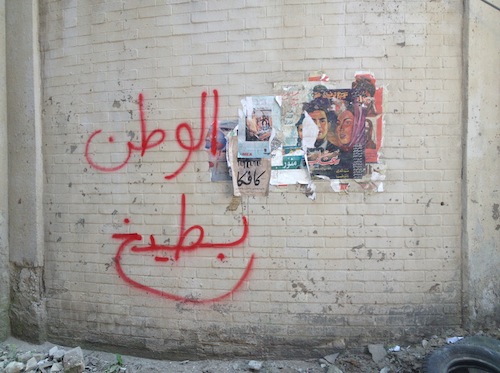
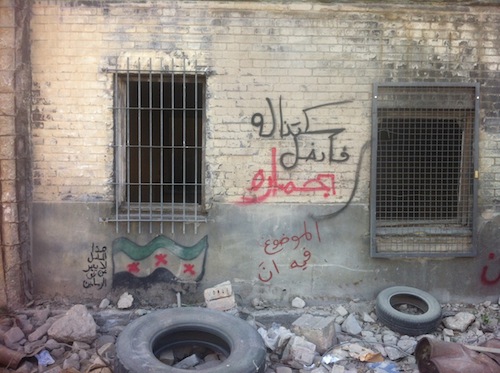
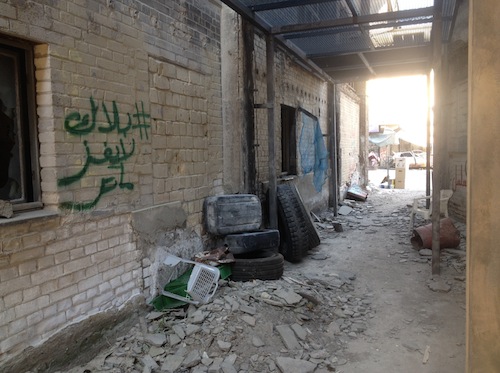
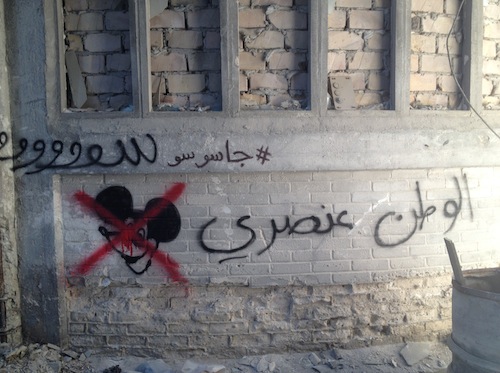
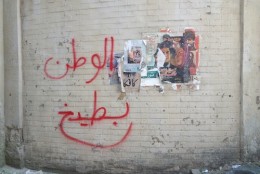
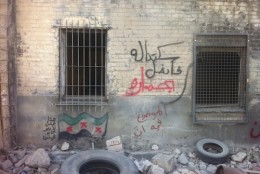
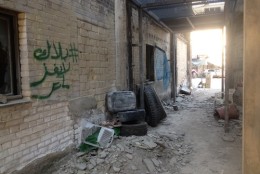
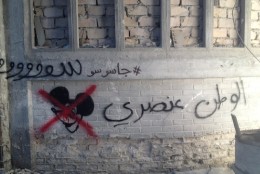
WASHINGTON – A group of street artists hired to decorate the set of a recent episode of Showtime series “Homeland” used their art to convey what they perceive as the show’s unfair and inaccurate portrayal of the Middle East.
The artists – Heba Amin, Caram Kapp and Stone – say they were contacted by a friend in the German street art scene, who’d been asked by “Homeland” producers for “Arabian street artists” to provide graffiti for a scene filmed in Berlin (but set in a refugee camp on the Syria-Lebanon border). They say they had mixed feelings at first.
“Given the series’ reputation, we were not easily convinced,” they wrote.
A writer in The Washington Post called “Homeland” “the most bigoted show on television.” In the first season, the artists write, the show “explained to the American public that al-Qaida is actually an Iranian venture,” which isn’t true.
The show also once named a terrorist character after a former real-life Pakistani ambassador to the U.S.
“The show gets high praise from the American audience for its criticism of American government ethics, but not without dangerously feeding into the racism of the hysterical moment we find ourselves in today,” they write.
“…For four seasons, and entering its fifth, ‘Homeland’ has maintained the dichotomy of the photogenic, mainly white, mostly American protector versus the evil and backwards Muslim threat.”
But they reasoned they could “make our point by subverting the message using the show itself.”
So they took the gig.
The episode aired last Sunday.








